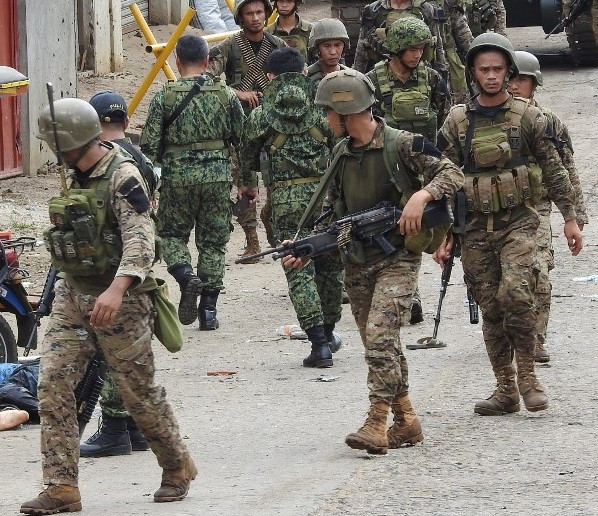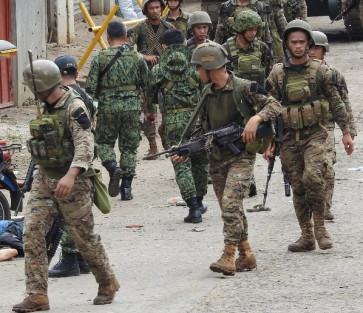Popular Reads
Top Results
Can't find what you're looking for?
View all search resultsPopular Reads
Top Results
Can't find what you're looking for?
View all search resultsJolo attack: Future trend of suicide bombings in Philippines
Suicide bombing can be seen as an incremental innovation that gained traction after it was introduced into IS propaganda and among its operatives.
Change text size
Gift Premium Articles
to Anyone
R
ecent suicide bombings conducted by female Abu Sayyaf Group (ASG)-Sawadjaan operatives have confirmed a new trend in terrorist attacks in the southern Philippines. Several elements show that this modus operandi chosen by the ASG will definitely continue in the months to come.
The Philippines authorities announced recently that both perpetrators who blew themselves up and killed 14 people and injured 75 civilians and soldiers were Philippine nationals. There had been speculation before the official announcement that one of the perpetrators was an Indonesian, and more particularly the daughter of the couple Rullie and Ulfa, the 2019 Jolo church suicide bombers, first results of the ongoing investigation tend to show the contrary.
In fact, after investigating through CCTV footage and the remains of the bombers, the Philippines authorities came to the conclusion that the perpetrators of the Aug. 24 attack were indeed two Philippine women, assisted by two other individuals. While the participation of women in acts of terror is obvious, it is worth noting that this attack — like previous ones — involved foreign terrorist fighters (FTFs).
Both suicide bombers were actually known by the authorities: in fact, both had lost their husbands — who were ASG members — in 2019. Nanah Dara was the widow of Norman Lacusa, one of the perpetrators of the June 28, 2019 attack on an Armed Forces of the Philippines (AFP) camp. The second suicide bomber, Indah Nay, was the widow of Abu Talha, an Islamic State (IS) liaison officer for the ASG who was killed by the AFP in November 2019.
According to sources, both women had planned the attacks for about two months. It is worth noting that the two were actually followed by four Army intelligence officers at the end of June 2020.
The four officers were shot by Philippines National Police (PNP) at a police checkpoint in Sulu.
While both the AFP and the PNP are conducting their own investigation into the shooting, this recent discovery is currently fuelling theories at the local level. Indeed, locals are speculating that the recent attack itself was some part of a hidden agenda by the authorities. As a matter of fact, many local people suggest that the pattern of the attacks was “weird”, occurring after the aforementioned shooting incident, with some details seemingly being set up.


















